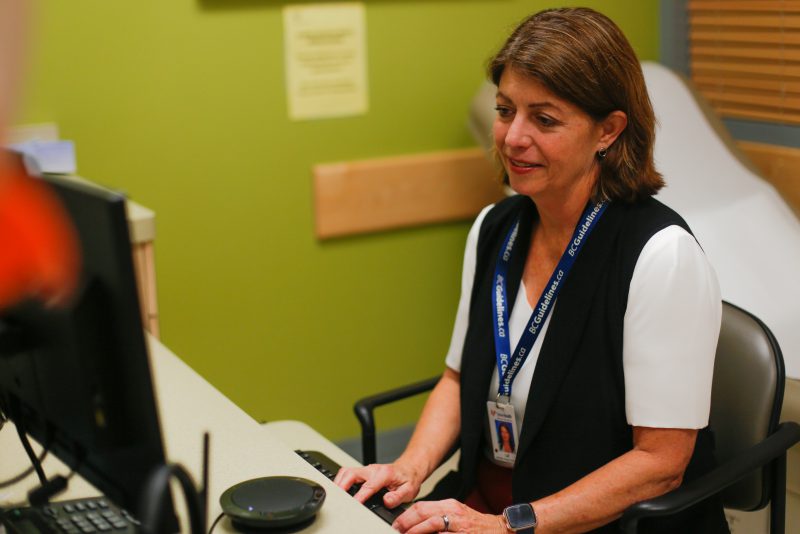
“Towards the end of February, I suddenly had a lot of trouble breathing,” recalls Jennifer Newman of Langley. “It turned out I had atrial fibrillation. I was admitted to Langley Hospital.”
As a cardiac hub, Royal Columbian sees patients from throughout Fraser Health who require treatment or consultations. Typically, patients like Jennifer would be temporarily transferred to Royal Columbian for a quick cardiac consult to discuss treatment options. This could require transportation, a nurse escort, a bed, and a wait that sometimes lasts hours.
Instead, Jennifer was able to connect with Royal Columbian’s experts directly from Langley by videoconference.
“I talked to a surgeon and a nurse together at Royal Columbian, and I had my nurse with me during the interview to help explain afterwards anything that I wanted a bit more about,” says Jennifer.
Since the program started in 2017 as a first of its kind in BC, Cardiac Network Clinical Nurse Specialist Clare Koning says cardiac virtual consults have shown a number of benefits.
“It’s saved a lot of money and time,” she explains. “For the patient, we’ve seen a 50% reduction in time to consultation, which is great.”
A cost analysis performed at the start of the program indicated that on average each virtual consultation results in a saving of $5,894 to the health system when compared to an in-person consult. Over two years, they have estimated total savings of more than $800,000.
The vast majority of these consults have involved electrophysiology, which treats conditions like atrial fibrillation. But the virtual program is now starting to include a small number of cardiac surgery consults too.
And after the pandemic was declared in March 2020, Fraser Health quickly moved to a virtual platform for its cardiac rehabilitation classes.
“I think we need more incorporation of technology in healthcare in a safe and meaningful way,” says Clare. “Fraser Health is really leading the way in this, creating a model that others can adopt.”
For Jennifer, who received a pacemaker to treat her heart condition, the benefits of virtual consults are clear.
“For something like a 15 minute interview, I think that it saves everyone’s time, just to be able to sit down and talk face-to-face but not physically, to not have to make that journey all the way into New Westminster, for me it was a big deal.”
